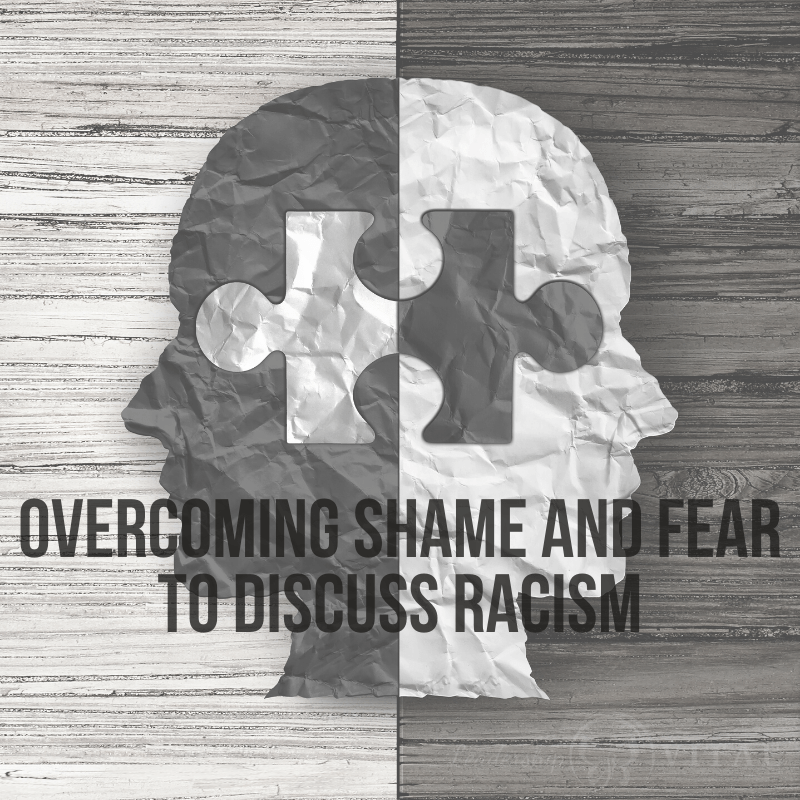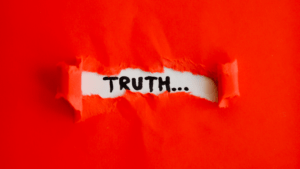
Two weeks ago, my son was 1,000 miles away from me when the world saw a man murdered over $20.
Henry, who is about to turn 13, posted about George Floyd in his instagram story. It was a wake up call for me. As the mother of a POC (person/people of color), I have a responsibility in his race education. He would be home a few days later, and I wanted to be prepared for those conversations.
Conversations about racial profiling and police brutality. About unconscious bias, prejudice, and inequity. How these show up in the legal, financial, healthcare, education, employment, and every other system built in this country.
But most importantly, to be prepared to talk about what he was feeling. What he had seen and heard. The impact to him now and what it might mean for him as a POC.
I started to read. Listen. Learn. While I had been living that commitment for years about the Korean culture – my son’s culture – I wanted to understand more. Be better for him and as an ally to POC in my circle.
The ride home
I met him and his dad just south of DC, giving us a few hours to talk on the drive home. For a teen boy, driving is a great time to connect. Face to face conversations can be difficult; better if we are doing something together or in the car.
I told him I had seen his posts. “You mean about George Floyd mom? He was killed. I don’t think that was racial profiling. Wait. (pause while he reflected) Nevermind. It was racial profiling. He was killed because he was black, wasn’t he mom?”
“Yes, baby. He was.”
We talked for a while about what we saw and heard and read. I told him that I want to be better at addressing my white privilege and have been doing a lot of reading and listening. “What’s white privilege mom?”
We discussed the benefits I get, including benefit of the doubt, just because I’m white. Even if I don’t ask for them. And that it’s not okay. That I have an obligation to address disparity and inequity, or I’m part of the problem.
I told him I also have a responsibility as a mother to a POC to be better. To do better. And I’m going to be doing a lot more reading and listening and learning. That I’d like to share some of those learnings with him.
“But I’m not a person of color mom.”
“Of course you are baby. You aren’t white.”
Feeling and moving past shame
I am not a big believer in shame. All of us make mistakes. I beat myself up for them a bit (maybe a lot), but also see that every mistake is an opportunity to learn. So I try to put the shame away and embrace the growth. Failure is only the failure to get back up and do better.
Until that moment.
That was when shame knocked me over. When I felt failure as a mother. In my fear to put race between us – to ever allow him to think I saw race instead of love when I look at him – I had failed to provide my son with a solid foundation to understand and address race and racism.
I had spent his entire life, more than his entire life, with race as a factor in how I parent. With intention…intention of understanding his culture and ensuring he felt connection to that culture, in moving to an area where more people look like him and families look like ours. Decision after decision, with his needs, including race, top of mind.
But I had never let him see that influence. I never shared my decisions and the factors that went into them. It had been left up to him to bring questions to me, like when he was 3 and asked why our skin colors were different.
The burden to discuss race shouldn’t be left to POC. It should never have been on my son.
I have accepted my mistakes and am committed to doing better. My good intentions – loving intentions – still caused harm. But each day can be day 1 of a new commitment. To normalize discussions about race and racism in our home.
Addressing fear head-on
In addition to being a mother, I am also an executive woman in technology for a healthcare company. I lead a team of about a hundred people focused on creating insights that help run our business. A team of individuals that are all on their own respective journeys regarding race, racism, and current events.
The Friday following George Floyd’s death, not only did I need to prepare for my son’s arrival, but I had to send an update to my team. I broke down as I struggled with what to write.
I opened with recognition of how challenging many of us may find navigating current events and processing our thoughts and feelings. Closed with a reminder that I was available to provide support or help prioritize work so they could care for their needs or that of their families.
It felt safe and careful.
It was only once the company stated their position regarding George Floyd’s death and the protests that I felt as though I had permission to show up authentically and worry less about how that might be received.
The comments I read in response to the company’s internal posts were enlightening. We were being asked to be leaders. To show up, create space, and to listen without judgment but with a willingness to learn.
I wasn’t exactly sure what that might look like, but I was not going to let fear prevent me from trying to be the leader my team needed.
The important part of facing fear is to begin. Just begin. Not one of us is perfect, but every one of us can all show up and try.
The first session with my team – a forum to share stories and experiences, ask questions, and support one another – was uncomfortable. There were long stretches of silence. Stories in fits and starts. About halfway through, there was more open sharing, including my own story. It was a start.
Responsibilities of a mother and leader
There is a lot of “I” in what I’ve written to this point, but it’s not about me. The focus is on my son, my team, my friends and anyone in my circle of influence. How I show up, the work I’m doing – I can control those things (hence the “I”) – but ultimately it is not for my own sake.
As leaders – and most of us are white at all levels of organizations – we have an opportunity. We have to do the work, but it’s not about us. It’s about purpose and inclusive leadership. We can intentionally:
- Create safe spaces for POC to show up authentically, without fear of judgment, bias, ridicule, missed opportunities or other forms of harm.
- Recognize where systems are broken and commit to fixing them.
- Normalize discussions about race and the impact of our broken systems.
- Get uncomfortable and do hard things to ensure every person in our charge feels like they belong, will be treated fairly, and has a voice that is heard.
While I am a leader, my greatest responsibility is to my son. Transracial adoption includes a commitment to help my child navigate a world that I have never experienced. To practice the same intentions at home as I do at work.
I’d argue that all parents have an opportunity to help their children understand race and racism, so that my child and all POC have an opportunity to experience a different world as we move forward.
As leaders and parents, let’s not put the burden on POC to initiate discussion, educate us, or affect change. Let’s listen, learn, and do the hard work to create the promise our country says it’s committed to, but for far too long has fallen short of.
True change, at work and at home, won’t exist unless we do.









14 Responses
Thank you for your courageous and open exploration of racism, and its impractical on your son (and us all). Particularly helpful was your thoughts about leaders and parents, as well as your awareness that that removing racism and its impacts will require long concerted effort. I as a leader and parent and grandparent with family members of color, thank you.
Bob – Of course. Thank you for taking the time to read and comment. Often, we think we are alone in our experience. It is only through a willingness to be vulnerable and share that we can normalize tough conversations. Realize that we are far from alone and can potentially benefit from the shared experience of others. I hope this time is normalizing what have historically been very challenging or absent conversations so we run towards them instead of maybe leaning away in discomfort.
Thank you for this beautiful piece, you are amazing! And I appreciate that you stated that “true change, at work and at home, won’t exist unless we do” – unless we make the changes you have recommended. Thank you again.
It’s painful that we are still having these conversations with our children in 2020 – some of my friends assumed that racism was already behind us, but it is not. We and our children still live with fear of judgment, bias, ridicule, missed opportunities or other forms of harm created by the broken system. I am a woman of color, I have my own biological children (of color) and I lead hundreds of children of color in my non-profit. So this is an important topic to me, and I am especially grateful when the wonderful white people in our world speak up about racism and what they are doing to stop it. Thank you for making a difference!
Rebecca, thank you. I have benefitted from diversifying my feeds and disrupting algorithms to seek out new voices, including thought leaders in the Black community, such as Dr Ibram X. Kendi. The plan is to continue that learning and integrating it into my relationships with my son and my team.
Interestingly, I was reading that not many of those typically quoted in leadership were speaking out and writing about what leaders “should be doing” right now, which leaves it up to each leader to listen, learn, and figure out what they can be doing for their teams. We have an obligation to BE leaders…to do the hard things and not wait for someone to tell us how or give us permission. Hopefully we see more of it, even if it’s uncomfortable. Especially if it’s uncomfortable.
Thank you again and best to your children and family.
Looked at your page, Your son is lucky. He can get advice from you on any subject . In the spirit of wisdom in 50 words or less, let me offer only the title of a Slate article:
Which People?
How “people of color” evolved from a gesture of solidarity and respect to a cover for avoiding the complexities of race.
By Rachelle Hampton
Feb 13, 20195:13 PM
https://slate.com/human-interest/2019/02/people-of-color-phrase-history-racism.html
Thank you Richard. I try very hard to recognize that my depth and breadth of understanding is a small subset in the possibilities of knowledge. If I ever forget, my teen will certainly remind me! He is the reason why I got started writing, however. So that when he starts working, even if I’m not here, he will have my stories as a way to help guide him.
I so appreciate you sharing the article. I have been reading other articles that share similar cautions. As a white mom, I want to give my son language that I don’t have for myself. So far, this has been through reading and keying off of friends who are POC (meaning they come from different racial backgrounds, so do not fit one specific race category). When my friends tell me their preference for reference, that’s what I use. I have one friend who is bi-racial and refers to herself as a WOC rather than a specific race. I can also see how referring to POC limits our ability to see representation when evaluating boards, companies, and organizations if they are 40% POC but 0% Black.
I continue to learn, listen, and adapt with feedback. Sometimes it’s difficult to know, but it’s more important to try than be certain. Thank you again for taking the time to offer a perspective and help my growth and that of other readers.
False narrative, he wasn’t killed because he was black. he was killed by a corrupt cop with a history of violence. Floyd was also committing a crime, high on drugs and an ex-felon. Let’s not dismiss pertinent facts to just produce what is inline with your narrative.
James – I had a few options here. I could have refused to approve your comment. I could have agreed to disagree. Neither of these helps. Even if you never see my reply, or do see it and think I have a false narrative, I’m going to respond anyway. For my own sake. For the sake of every person on the receiving end of systemic racism. For every victim that is blamed by their accuser or oppressor. And so every person that reads my blog – and my SON – know exactly where I stand and will continue to stand.
No person, no matter their crime, deserves to die on a street with a knee on their neck for 8 minutes and 46 seconds. Excessive force on someone who is prone, no longer a threat, and clearly non-responsive is not okay. It doesn’t matter if it was a suspicion of a counterfeit $20 bill. Or falling asleep in a car in a Wendy’s parking lot. Or sleeping at home and being killed in your bed.
Victim blaming is never okay. Whether it’s rape, abuse or MURDER. Not okay. This is not a false narrative. Say their names. Look at the growing list of disproportionately Black names being killed by police officers. The corrupt cop narrative doesn’t cut it either when it’s so pervasive.
The Washington Post has been collecting a list of names for victims of police shootings (what they can get a hold of, because cities are not required to report) for the last 5 years. I’ve lived in ignorance long enough. The false narrative was the one I was being fed for decades. I’m full up.
https://www.washingtonpost.com/graphics/investigations/police-shootings-database/
So Kristen, Floyd aside.. I agree this was an agregious act commited by the police officer. Who knew the perp. No argument. But let’s move to the “Wendy’s Sleeping Person” named Rashard Brooks. Out on Parole for a 7 year term for beating his kids. If you watch the videos, you will see a polite officer administering a field sobriety test. Then a scuffle, Rashard grabbing the taser aiming it to reder the officer disabled. Which then he could do much more harm. So you will see the officer is justified and will get paid for unfair dismissal from the PD that dismissed him. You should look into the facts instead of the false narrative you have been fed. This is the exact reason we are in the problem we have in the USA. People are too sensitive and do not take personal accountability for thier actions. Video attached below.. If you want to continue to defend him, you are blind.
https://www.9news.com.au/world/rayshard-brooks-shooting-wendys-set-alight-after-police-kill-atlanta-black-man/60e04e6e-33a2-4251-bcf7-3ca2532f95d7
James – We depart again. Before the field sobriety test, there were many opportunities for this to end with no one dying, such as when he offered to lock his car and walk to a nearby relative’s home. The statistics are overwhelming. Too high a percentage of deadly force per capita against Blacks relative to other races. I’m not blind. I can see victim blaming just as clearly as I did yesterday. You will not convince me. I work in data and analytics. The data in healthcare, housing, finance, courts…they all show similar disproportions of worse outcomes based on race per capita. All of them. I refuse to continue looking at each person and victim blaming when it’s clear in the data that it is a long-term trend in all of our systems. That points to something much bigger than any one person. I’ve heard it referenced to as a groundwater issue – we aren’t talking about just one fish or just one lake. When it’s all certain types of fish in all the bodies of water, something is wrong in the environment.
“True change … won’t exist unless we do.” This is so true. Thanks for a thoughtful post.
Thank you Paula. I appreciate you taking the time to read and comment. I’m glad it resonated with you.
Greetings! I’ve been following your website for a long time now and finally got the bravery to go ahead and give you a shout out from Houston Texas! Just wanted to say keep up the fantastic job!
Really enjoyed this article, can you make it so I get an alert email when you make a fresh post?